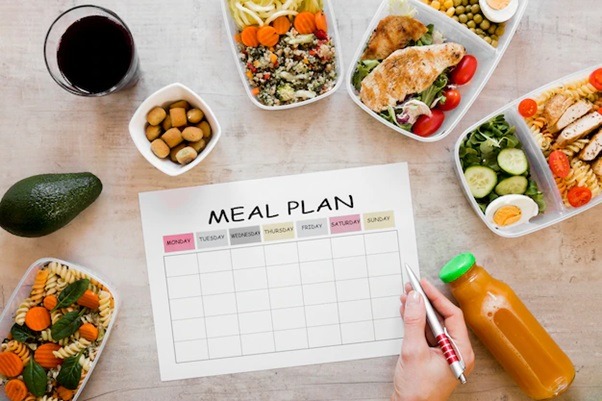Preparing meal plans a week in advance is essential to maintaining a healthy lifestyle and diet. Making a grocery list also helps immensely in planning for the upcoming week.
While it might sound hectic and complex, the truth is that it can be quite fun if you follow the right method. Meal planning can become a mess if you are aware of the shortcuts. So, this article will help you with the dos and don’ts of meal planning to help you prepare tasty and nutritious food for the week.
Below are a few tips that can help you have fun planning your meal for every week of the month.
Meal Plans: The Dos
Allot a Specific Time Slot for Meal Planning
Like work, your doctor’s appointments, spa appointments, or going to the mechanics, set a specific day or time for planning and prepping your weekly meals. Without a particular time or date, you might forget about it or schedule other things on a more priority basis.
Moreover, a fixed time will help you focus on only the meal plan and do it fast in a systematic way. Try to prep for the meal plan on Saturdays to have Sundays for yourself and your family. Also, keeping a buffer day in before the week starts will help you with prep in case you run out of time to buy groceries from the store.
Check What You Have At Home First
This point is self-explanatory. Just search through your pantry, freezer, and fridge and take stock of your food items. Make a list with names and quantities required to get a clear idea of what you need to buy.
Focus on convenience items for ease of preparation
Food prepping takes a lot of time. So try to use convenience items like instant oatmeal, salad kits and chopped veggies and fruits as much as possible. While these items might initially cost you a little more, they will prevent food waste and help you prepare food quickly.
Bring Old and New Recipes Together
When planning your meals a week in advance, include dishes you have cooked before. However, keep trying new recipes as well in your meal plans.
Schedule your tried and tested old classic dishes on your busy days. Eat the new recipes when you are free and open to trying new flavours.
Meal plans: The Don’ts
Don’t Go Overboard with Your Meal Plan
Always trust your list before you hit the grocery store. While it is okay to give yourself a leeway of $10 to $15, it is best to avoid impulse buys. Buy exactly what is on your list. There is an exception to this rule.
- You are getting a great price on the item
- It is a thing that you always use for your meal plan
Do not go for a bigger size unless it meets the above two factors. Making impulse buys will not only cost more money but will also result in food waste.
Don’t Purchase Too Much Fresh Produce
This is a common mistake made by all beginners. Buying too much fresh food at the start of the month will result in food waste. You can purchase small batches that will last a week and then make a trip to the store again to stock up on what you need.
This rule applies more so in summer when fresh produce is more likely to go bad when not used for long periods. Also, short trips to the farmers market will take you away from the big grocery stores and help you avoid impulse buying.
Don’t Ignore Seasonal Fruits and Vegetables in Your Meal Plans
Try to create meal plans focussing on in-season vegetables sourced from local farmers’ markets. Out-of-season food items will contain chemical preservatives that harm your health. Moreover, these food items would cost more than in-season produce.
Bottom Line
Meal planning is an enjoyable task if done the right way. If you really need more time to do it, you can always opt for freshly prepared meals delivered to your workspace or home. You can customise and order these meal plans online to suit your dietary requirements. A healthy lifestyle is just a click away.

